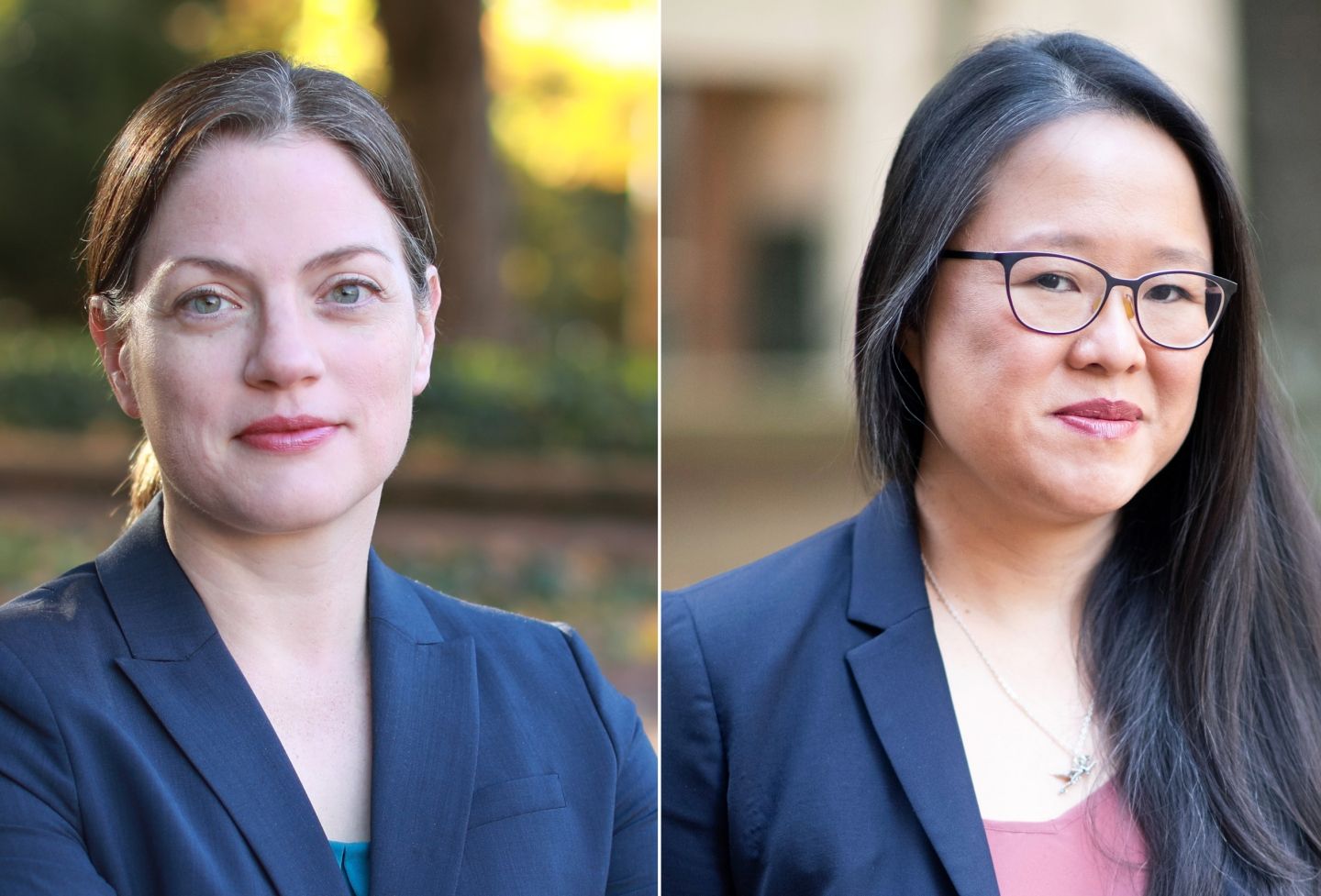Leaders across the education field helped kick off the Education Rights Institute at the University of Virginia School of Law on Monday, launching an effort designed to improve access to high-quality education for disadvantaged students.
In her introduction to the event, inaugural Education Rights Institute director Professor Kimberly Jenkins Robinson stated her goal: “Each and every student should have access to a high-quality education that prepares them to be college and career-ready, [as well as] engaged civic participants.”
Supported by an anonymous $4.9 million gift, the institute aims to promote scholarship about a federal right to a high-quality education and help school districts understand how that intersects with their obligations to protect students from discrimination under Title VI of the Civil Rights Act. The institute will also assist schools in identifying the federal resources available to fulfill their obligations, and amplify data and research about educational opportunity gaps and how federal resources could address those shortcomings.
Na’ilah Suad Nasir, president of the Spencer Foundation, a nonprofit that invests in education research, delivered the keynote address at the launch.
Nasir said the institute could help address two important goals: “The need for us to reframe how we think and talk about equity in education … [and] the need in the field of education research to create spaces for deeper and more abiding connections between scholars, system leaders, litigators, advocates, teachers and, ultimately, families and communities.”
She highlighted lessons she has been reflecting on during the 70th anniversary of Brown v. Board of Education, the 1954 U.S. Supreme Court decision that desegregated schools, including the idea that integration and inequality can still walk hand in hand. Practices like ability tracking can, she said, separate children by race.
“In a zero-sum game world, where we assume there is not enough good stuff to go around, privilege protects itself,” Nasir said.
Children should also see themselves represented in their teachers and school leaders, she added.
“Identity and learning are inseparable,” Nasir said. Students have an emotional need for safety and belonging, and when these things are present, students “are better able to learn, engage and develop identities as learners.”
Nasir called Brown “a cautionary tale for us to dream bigger.” She urged the audience to rethink ideas of democracy to create a system that provides “aspiration, access and advocacy” to all students.
She said research from the Education Rights Institute can aid in this dream. Scholars must do research “with people, rather than on them” to “reframe, rethink and recreate” education today.
The institute’s director, Kimberly Jenkins Robinson, the Martha Lubin Karsh and Bruce A. Karsh Bicentennial Professor of Law, is an education law and policy expert. Robinson is also a professor in UVA’s School of Education and Human Development and the Frank Batten School of Leadership and Public Policy, and director of the Law School’s Center for the Study of Race and Law. She formerly served as an attorney with the general counsel’s office of the U.S. Department of Education and represented school districts while at Hogan Lovells.
Other participants in the launch included UVA Law Dean Risa Goluboff and UVA President Jim Ryan ’92, an education law scholar, who offered welcoming remarks. After the keynote talk, two panels — on educational opportunity gaps and potential reforms to close them — featured leading experts, scholars and advocates in the field, including U.S. Rep. Jennifer McClellan ’97, who represents Virginia’s 4th District, and Stanford University professor Sean Reardon. (See full schedule)
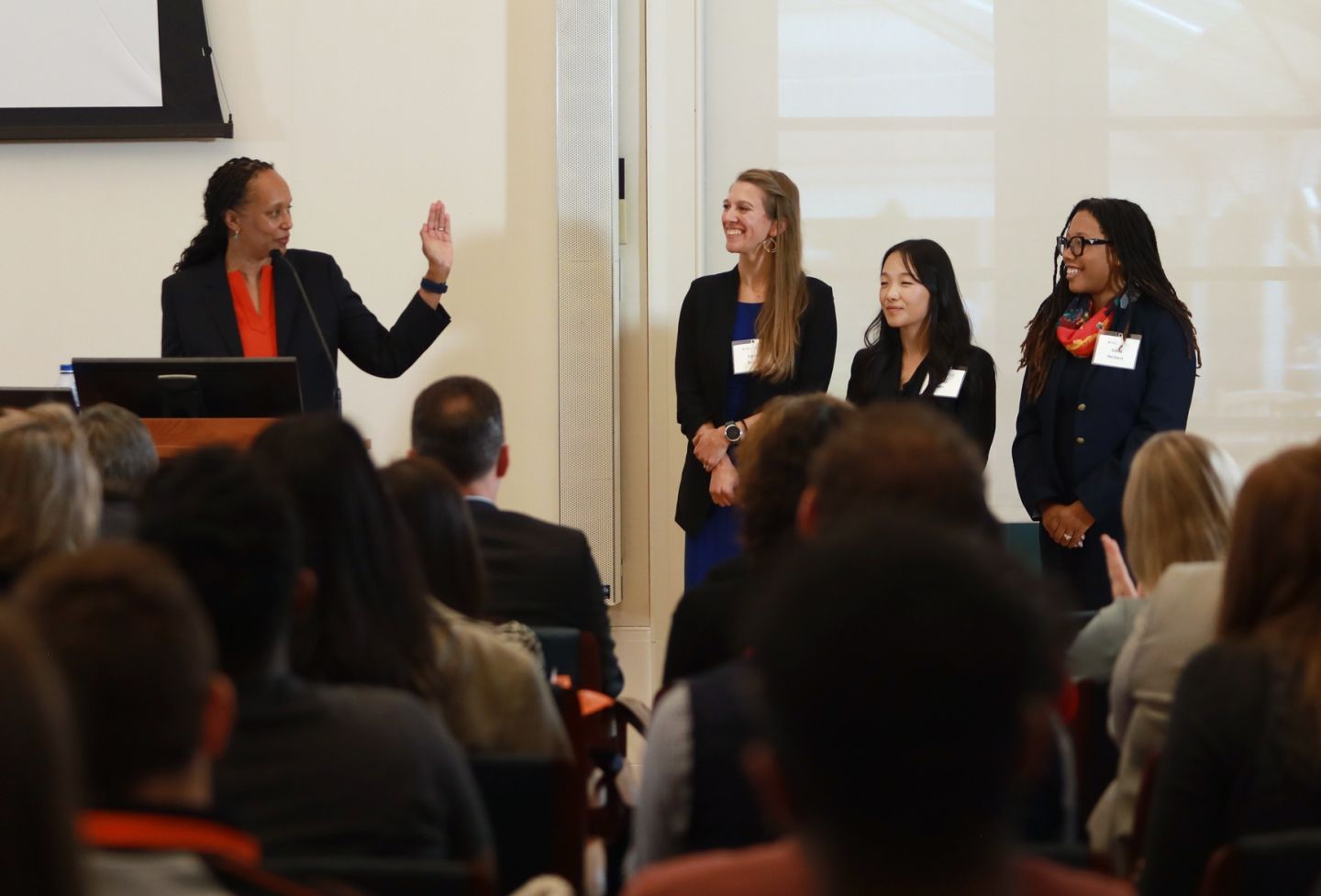
Professor Kimberly Jenkins Robinson introduces Education Rights Institute Fellows Sarah Beach and Helen Min, and Director of Programming GeDá Jones Herbert.
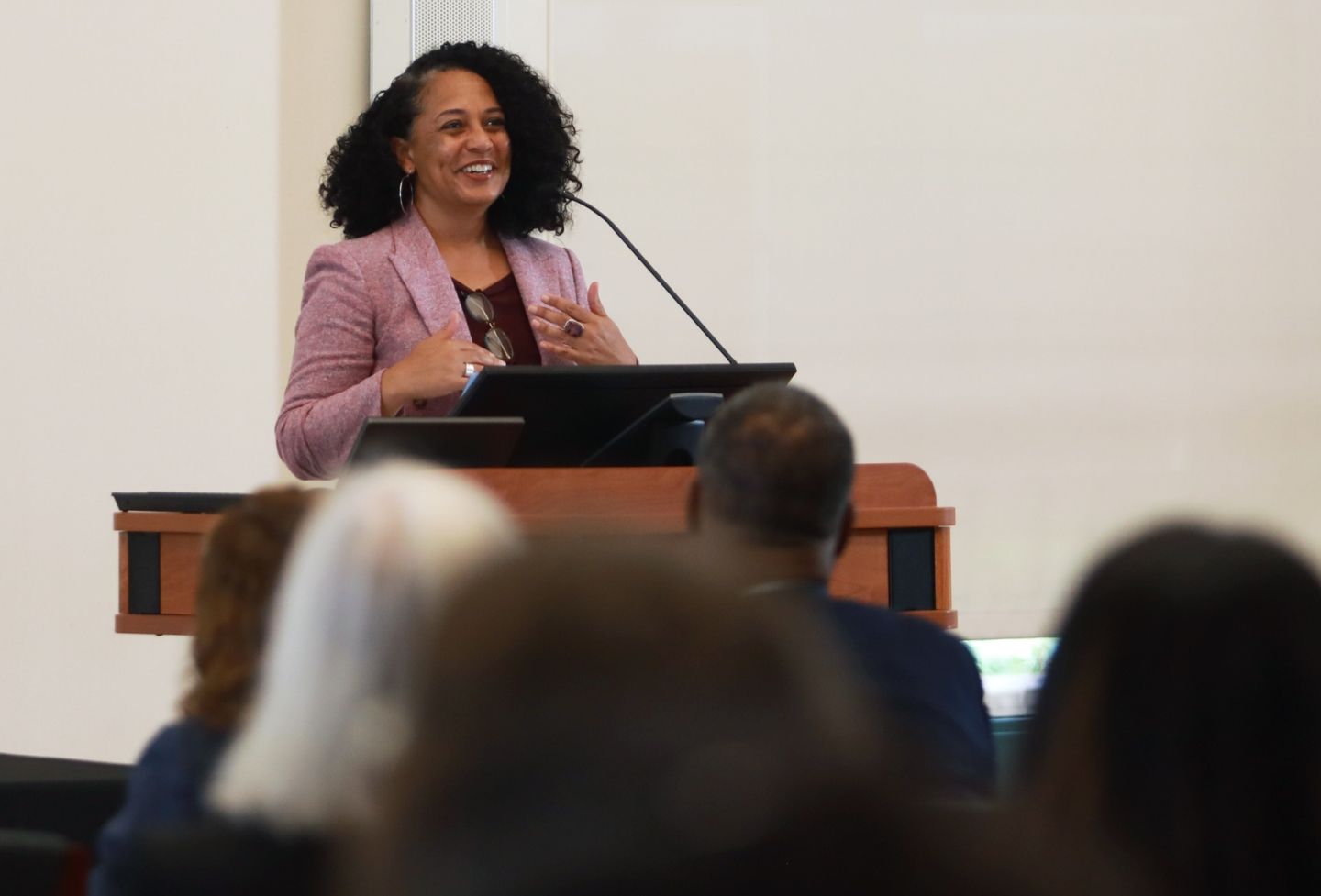
Na’ilah Suad Nasir, president of the Spencer Foundation
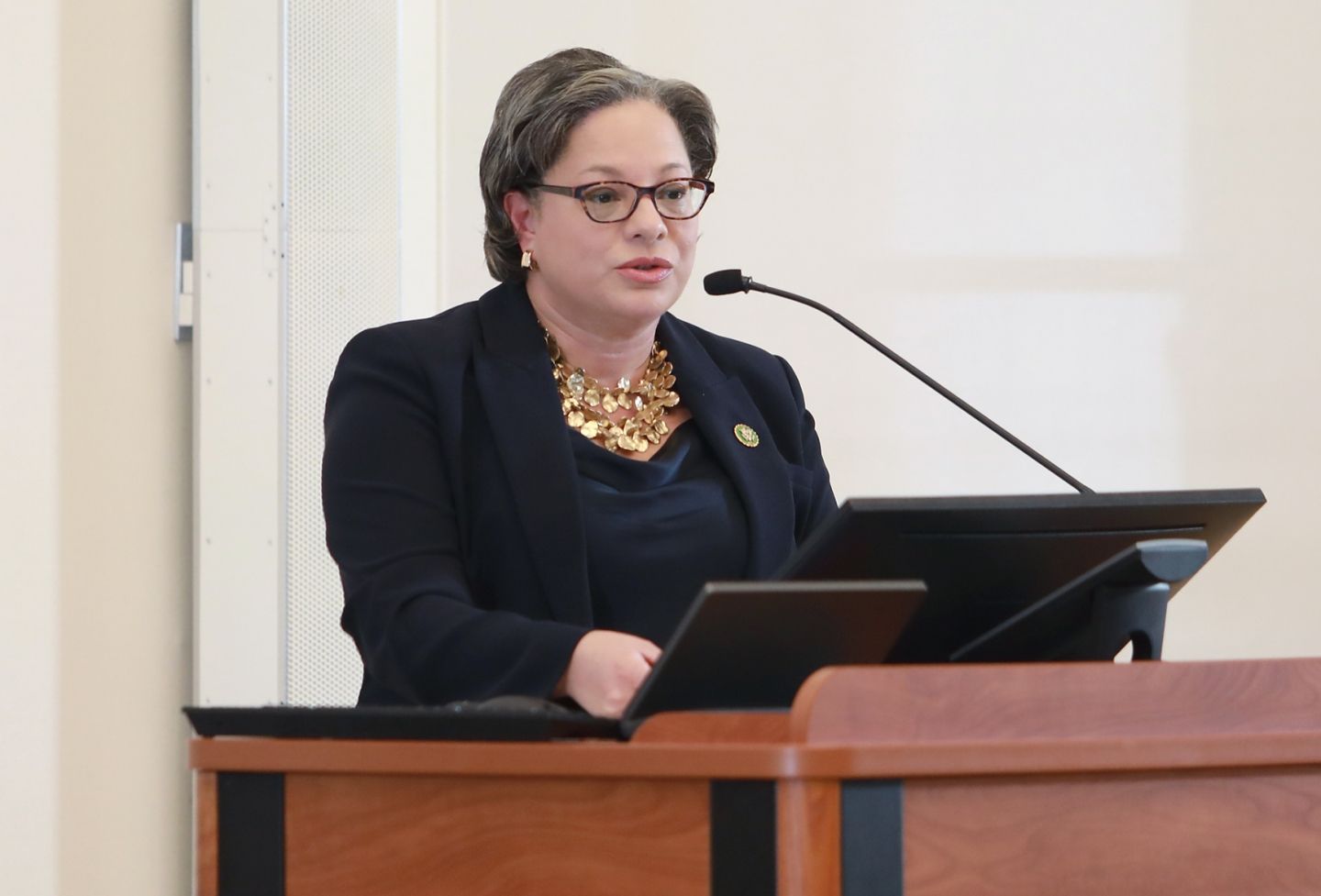
U.S. Rep. Jennifer McClellan ’97
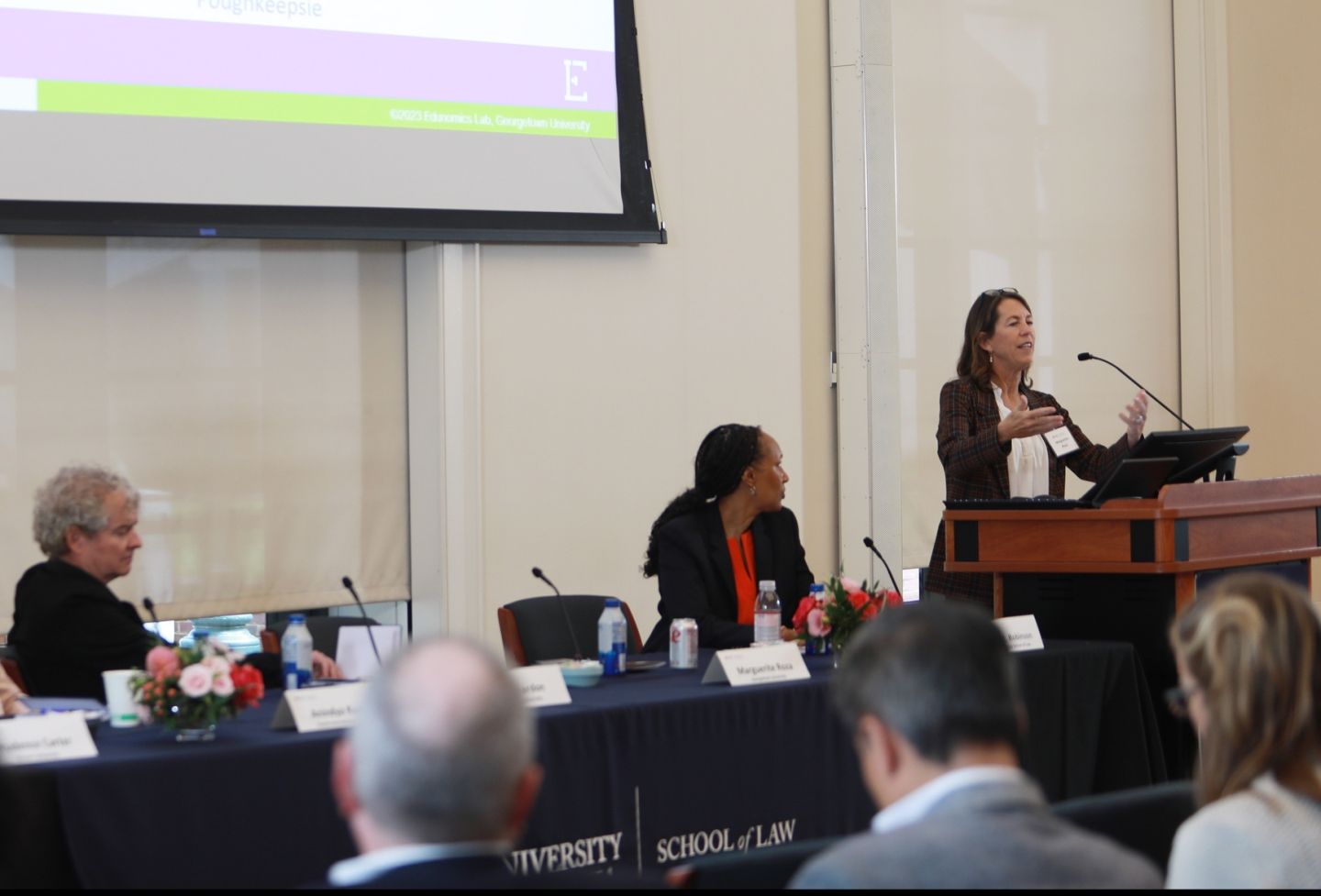
Georgetown University research professor Marguerite Roza speaks
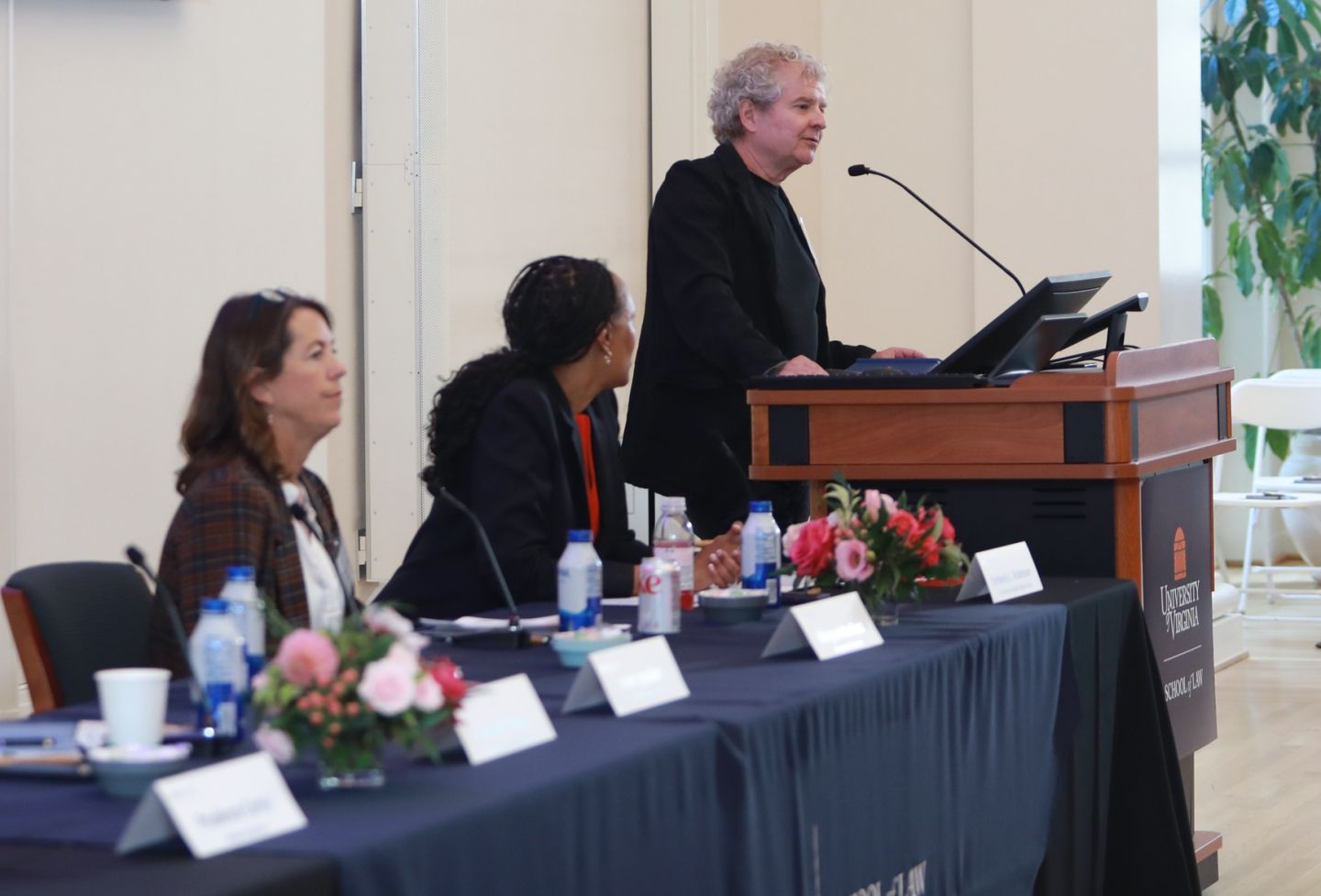
Stanford University professor Sean Reardon speaks
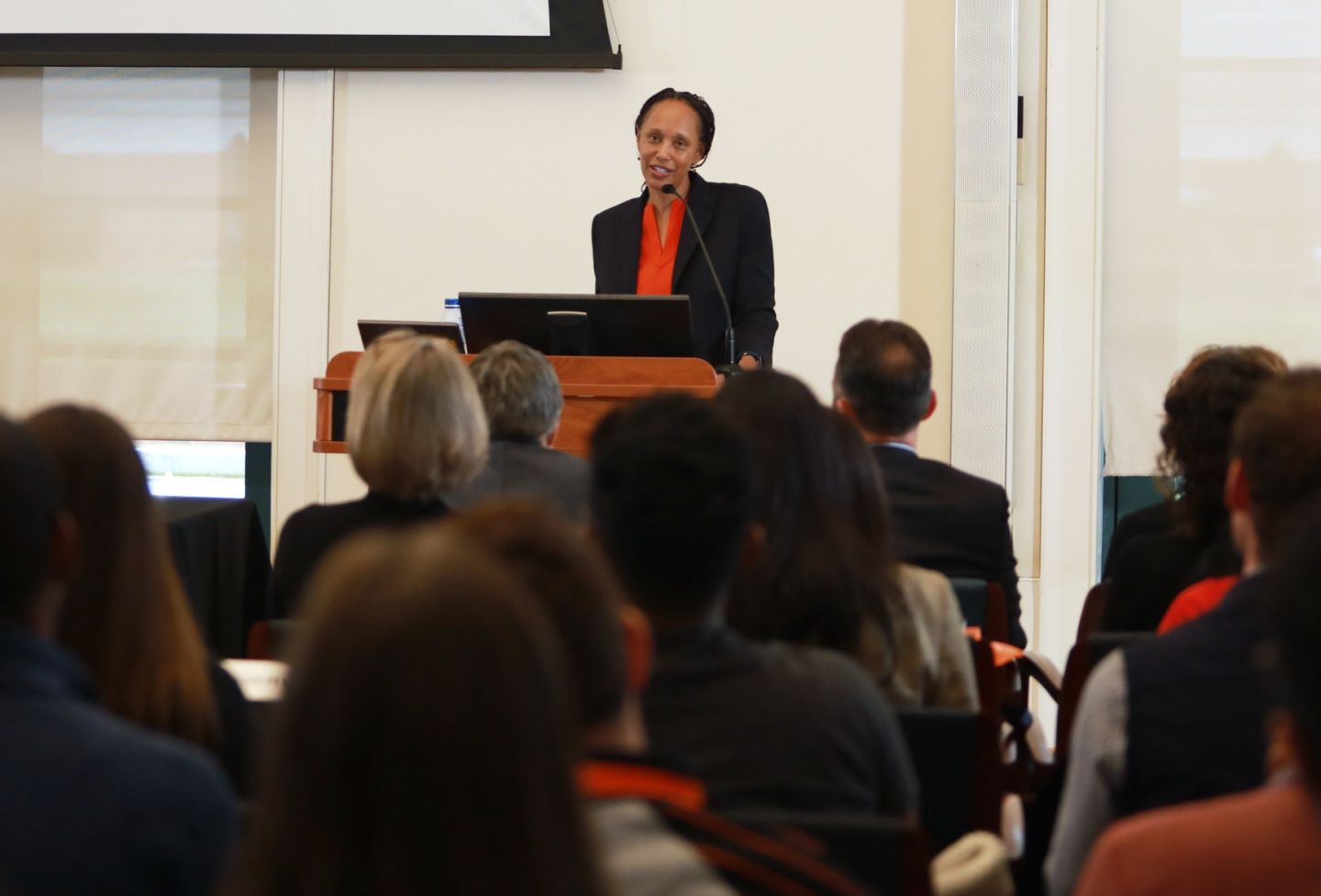
Professor Kimberly Jenkins Robinson directs the institute.
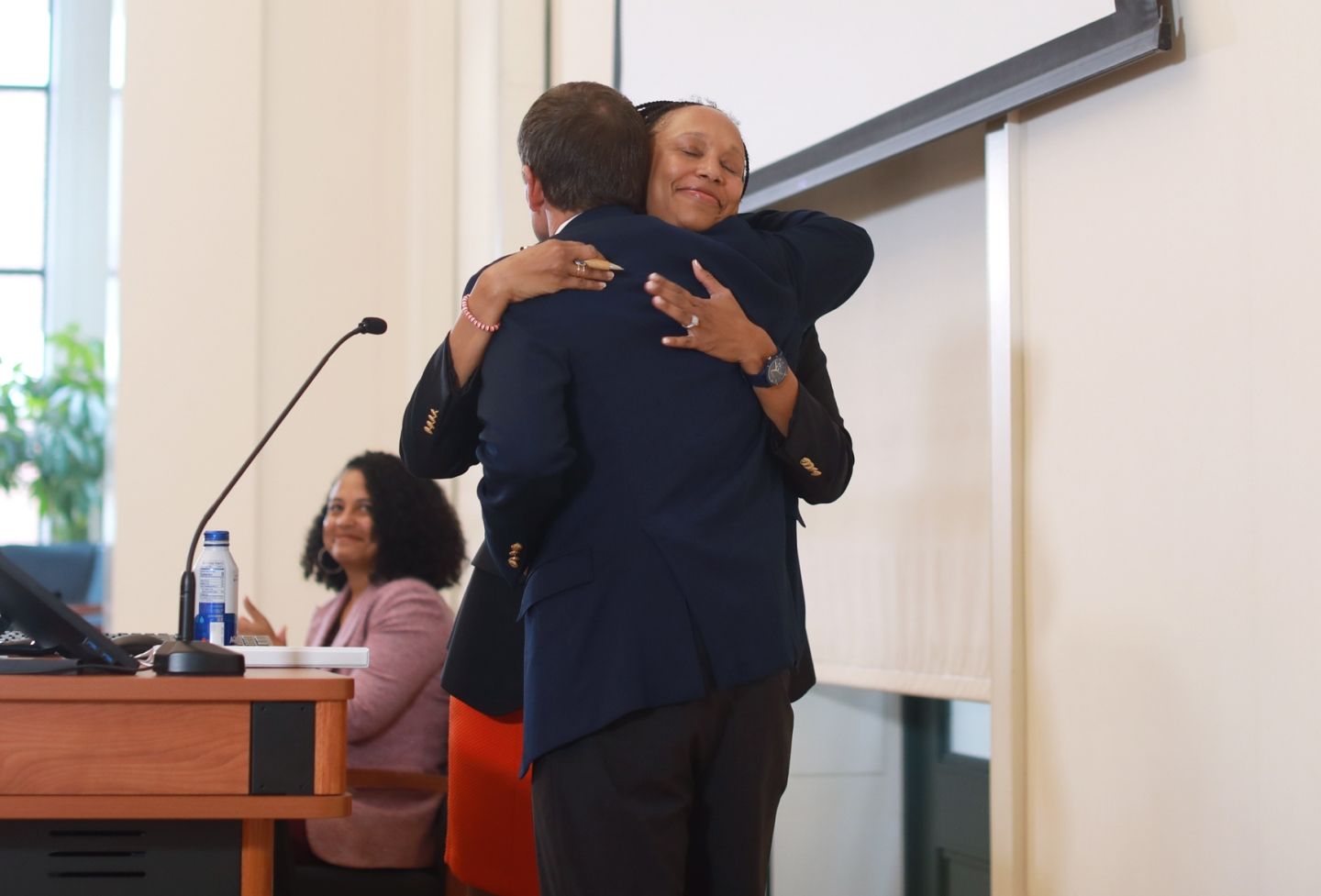
Professor Kimberly Jenkins Robinson hugs UVA President Jim Ryan ’92.
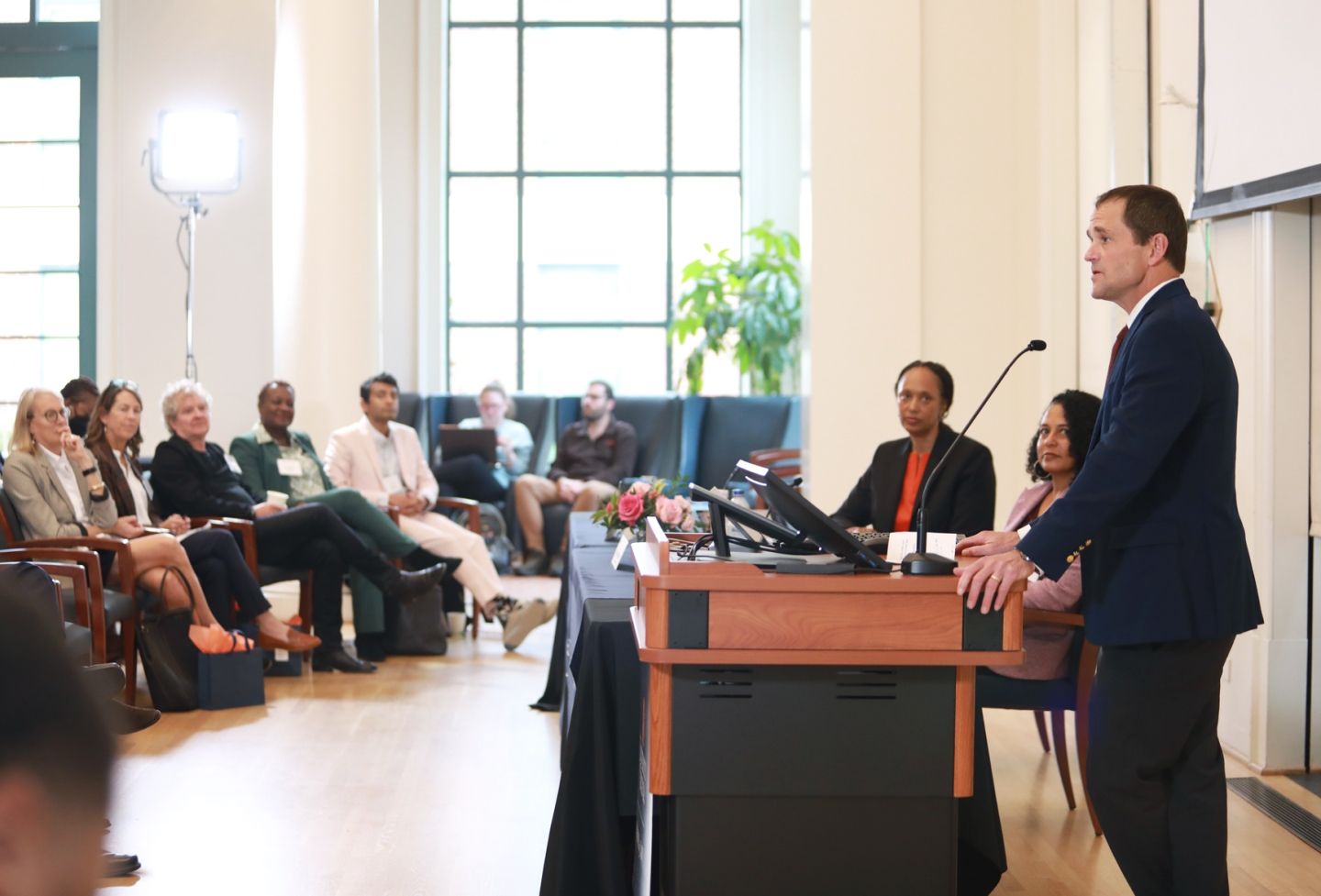
UVA President Jim Ryan ’92 speaks
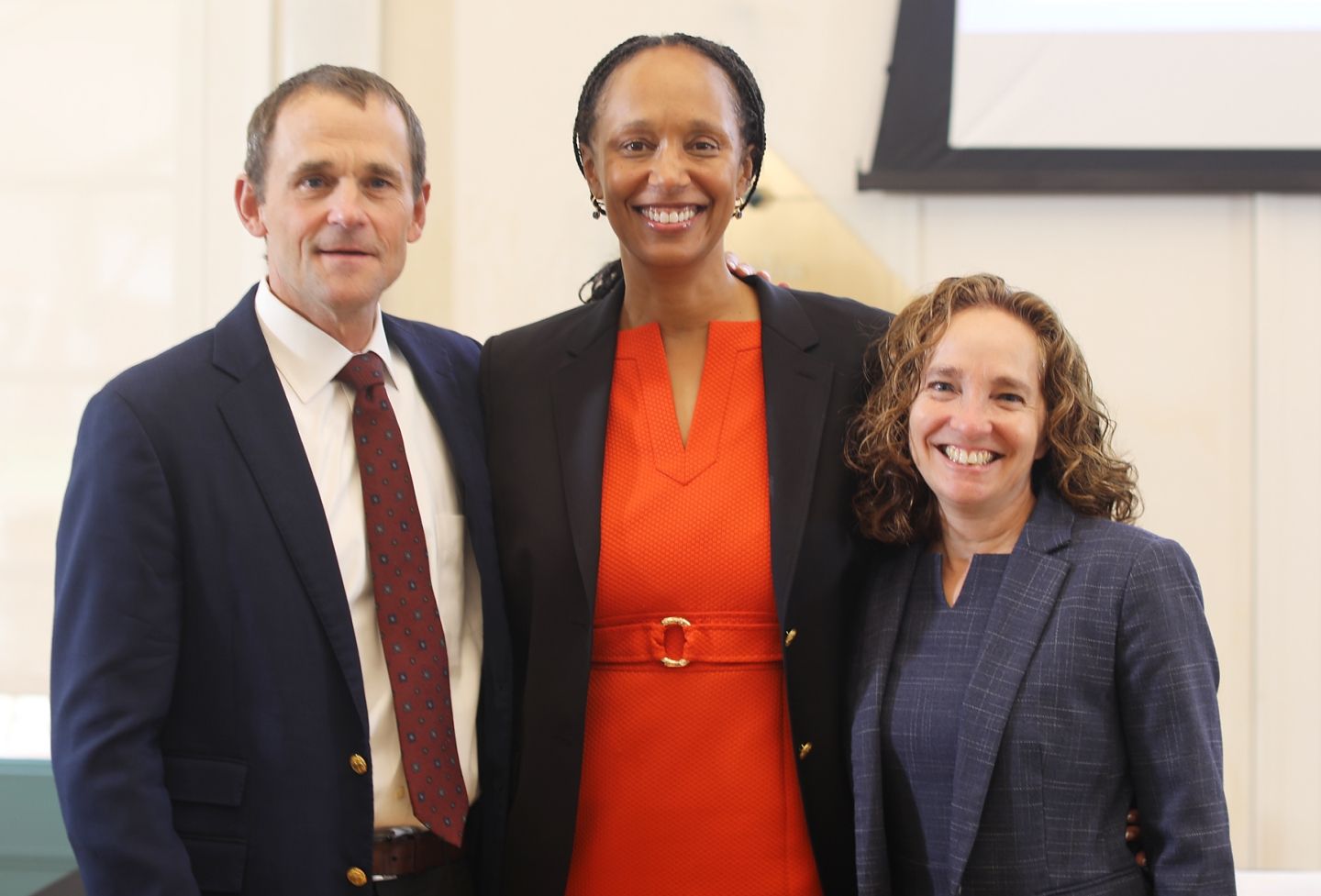
UVA President Jim Ryan ’92, Professor Kimberly Jenkinson Robinson and Dean Risa Goluboff
Founded in 1819, the University of Virginia School of Law is the second-oldest continuously operating law school in the nation. Consistently ranked among the top law schools, Virginia is a world-renowned training ground for distinguished lawyers and public servants, instilling in them a commitment to leadership, integrity and community service.


